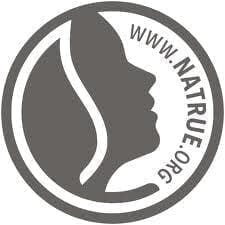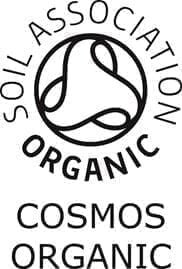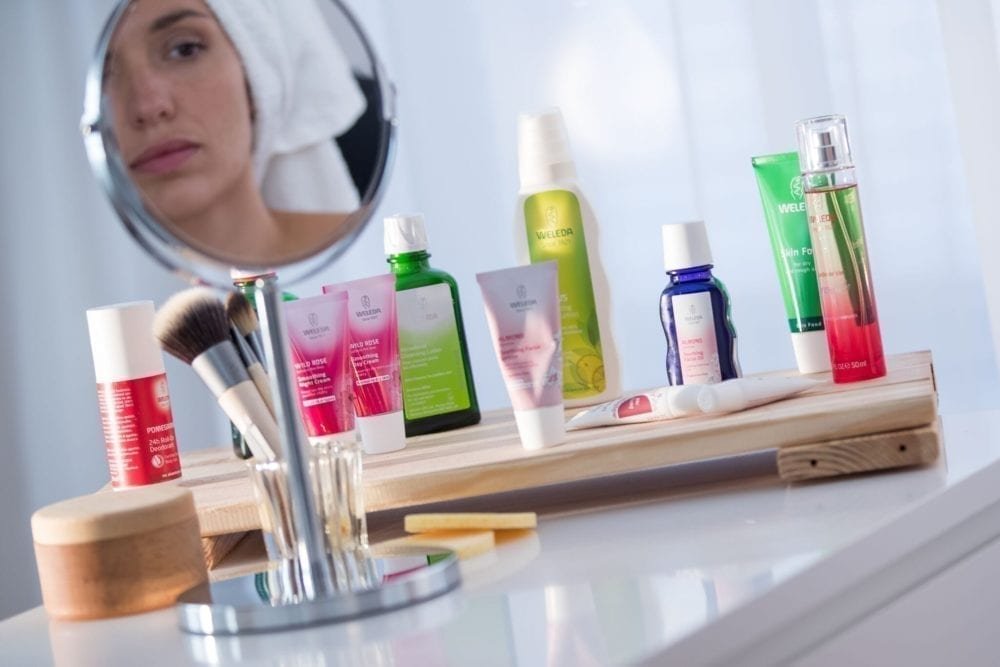
PIONEERS OF GREEN BEAUTY
Jayn Sterland, MD of Weleda UK, has just claimed the top spot in the ‘Who’s Who in Natural Beauty’ list of industry movers and shakers – for the second year running.
Weleda has been a pioneer of green beauty since 1921; it has remained so popular across the generations because truly natural beauty products just work.
Combine this with the no-nonsense branding – Skin Food is a deliciously nourishing wonder balm that can perk up the hungriest, thirstiest and most jet-lagged skin – and you’ll see why Weleda is a trusted favourite among those in the know.
Click here to find out why Weleda Skin Food is a MyGreenPod.com Hero
ARE ‘NATURAL’ PRODUCTS DIFFERENT?
The list goes on – and the worst part is that, even when you make a conscious decision to avoid these harmful ingredients by choosing a product clearly labelled ‘natural’, you could still be exposed to them.
This is because there’s currently no harmonised standard for – or official regulatory definition of – ‘natural and organic cosmetic products’; while all cosmetics on the European market must comply with the EU Cosmetic Regulation, ‘natural and organic’ remains an officially undefined sector of the otherwise tightly regulated European industry.
This means brands can use the terms ‘natural’ and ‘organic’ to cash in on growing consumer interest in the sector, without being held to account over how the terms are used, and whether they accurately reflect the products beneath the label.
In 2012 the Advertising Standards Authority (ASA) ruled that an advert on boots.com for ‘Little Me Organics Oh So Gentle Hair and Body Wash’ was misleading because the organic ingredients – which were all certified – made up less than 5% of the total product. Boots UK Ltd was told that the ad must not appear again in its current form, but no company has a legal obligation to take the ASA’s advice.
‘Toxic chemicals in everyday cosmetics are poisoning us and damaging the natural world. A lack of regulation and consumer awareness allows ‘greenwashing’ to thrive. It’s time for honesty and transparency and ‘big beauty’ brands need to clean up their act. We all have a part to play by demanding truly authentic natural and organic cosmetics.’
JAYN STERLAND
MD of Weleda UK
CONSUMER CHOICE
Customers have the right to choose whatever beauty products they want, but they can’t make informed decisions if they’re not given enough – or sometimes even correct – information at the point of sale.
 In a bid to clean up ‘natural’ beauty’s dirty secret, some pioneers have created their own standard to help shoppers navigate the aisles.
In a bid to clean up ‘natural’ beauty’s dirty secret, some pioneers have created their own standard to help shoppers navigate the aisles.
Products carrying the NATRUE logo, for example, have met the requirements of a standard that sets three certification levels: ‘Natural Cosmetics’, ‘Natural Cosmetics with Organic Components’ (at least 70% organic) and ‘Organic Cosmetics’ (95% or more organic).
The certification process is carried out by third party and independent organisations that verify product compliance to the standard. Products from over 230 manufacturers in 30 different countries now carry the NATRUE label, which can now even be found on natural nail polish and BB and CC creams.
 Likewise, most people now know to look for the Soil Association’s stamp of approval on certified organic food, but the charity is also one of five European organisations that, in 2002, came together to harmonise their individual standards for organic and natural cosmetics.
Likewise, most people now know to look for the Soil Association’s stamp of approval on certified organic food, but the charity is also one of five European organisations that, in 2002, came together to harmonise their individual standards for organic and natural cosmetics.
The agreed standard – COSMOS Organic – requires ‘organic’ products to contain 95% organic ingredients. COSMOS also provides certification for products that say they’re ‘made with organic’ ingredients, if 20% of the ingredients in leave-on products are organic (or 10% in rinse-off products).
All COSMOS Organic-approved products use only natural colour and fragrance, use traceable and sustainably sourced ingredients and are never tested on animals. ‘COSMOS Natural’ products don’t have to contain any organic ingredients – though many do. This logo is more for products like toners, bath salts or face masks that contain lots of ingredients that can’t be organic, such as water, salt or clay.
The logo guarantees no animal testing and no GM ingredients, controversial chemicals, parabens, phthalates or synthetic colours, dyes or fragrances. These standards, agreed between the Soil Association, BDIH (Germany), COSMEBIO (France), Ecocert Greenlife (France), ICEA (Italy) are used by over 1,600 companies manufacturing and selling over 25,000 products in more than 45 countries – which adds up to about 85% of the certified cosmetics market.
When you’re choosing a product, don’t trust the image that’s painted by the brand. Read the label, check the ingredients and look out for the COSMOS and NATRUE logos. If you’re putting something on your skin, make sure it’s good enough to eat – because eat it it will.
Click here for more about Weleda’s pioneering approach to natural beauty.
 Play Video about This Rock Might Just Save The World
Play Video about This Rock Might Just Save The World Play Video about Play 2 hours of rock
Play Video about Play 2 hours of rock Play Video about Play 2 hours of brook
Play Video about Play 2 hours of brook Play Video about Play 2 hours of sheep
Play Video about Play 2 hours of sheep




















 In a bid to clean up ‘natural’ beauty’s dirty secret, some pioneers have created their own standard to help shoppers navigate the aisles.
In a bid to clean up ‘natural’ beauty’s dirty secret, some pioneers have created their own standard to help shoppers navigate the aisles. Likewise, most people now know to look for the Soil Association’s stamp of approval on certified organic food, but the charity is also one of five European organisations that, in 2002, came together to harmonise their individual standards for organic and natural cosmetics.
Likewise, most people now know to look for the Soil Association’s stamp of approval on certified organic food, but the charity is also one of five European organisations that, in 2002, came together to harmonise their individual standards for organic and natural cosmetics.






















